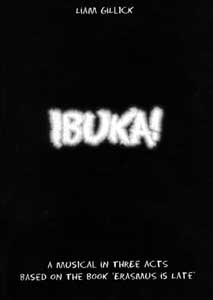
![]()
The
book "Erasmus is Late" concerns a dinner in London that flas-
hes between 1810 and 1997. A central tension is created with the kno-
wledge that this dinner is taking place on the night before the mob
are re-defined as the workers. It is the last time they could be asses-
sed as an incoherent group and from this point on any position in
society has to be negotiated rather than given. From now on every-
day is not the same, the near future is roughly predictable and poten-
tially changeable. We have growth. Modern destabilisation has set
in. The book also functions as a guide to London, the central char-
acter wandering around various sites for the development of free-
thinking. A number of people are present at this meal, all involved
in a time slip. Each could be described as a parallel individual. Not
at the centre of any particular power structure but central to the
development of other people's ideas. The host of the dinner doesn't
turn up so the evening ends in relative failure combined with a
degree of placid resignation. The guests have not come to terms with
the potential of that night's events. Yet the test of us have witnessed
something quite special. A debate about debate. An attempt to re-
frame potential across time. Although the opportunity to encoura-
ge a particular form of pre-Marxist republican revolution bas been
lost, the conditions that provoked the rise of the soft left and late
Twentieth century democratic market economies have been laid bare.
Ibuka!
is a musical that focuses on one of the key characters in
the book. An adaptation of "Erasmus is Late". So a stage setting
must be visualised and various possibilities explored. Ibuka! is a
musical entertainment that deals with the roots of our current situa-
tion and the embryonic status of socialism and Western European
4
the book. An adaptation of "Erasmus is Late". So a stage setting
must be visualised and various possibilities explored. Ibuka! is a
musical entertainment that deals with the roots of our current situa-
tion and the embryonic status of socialism and Western European
4